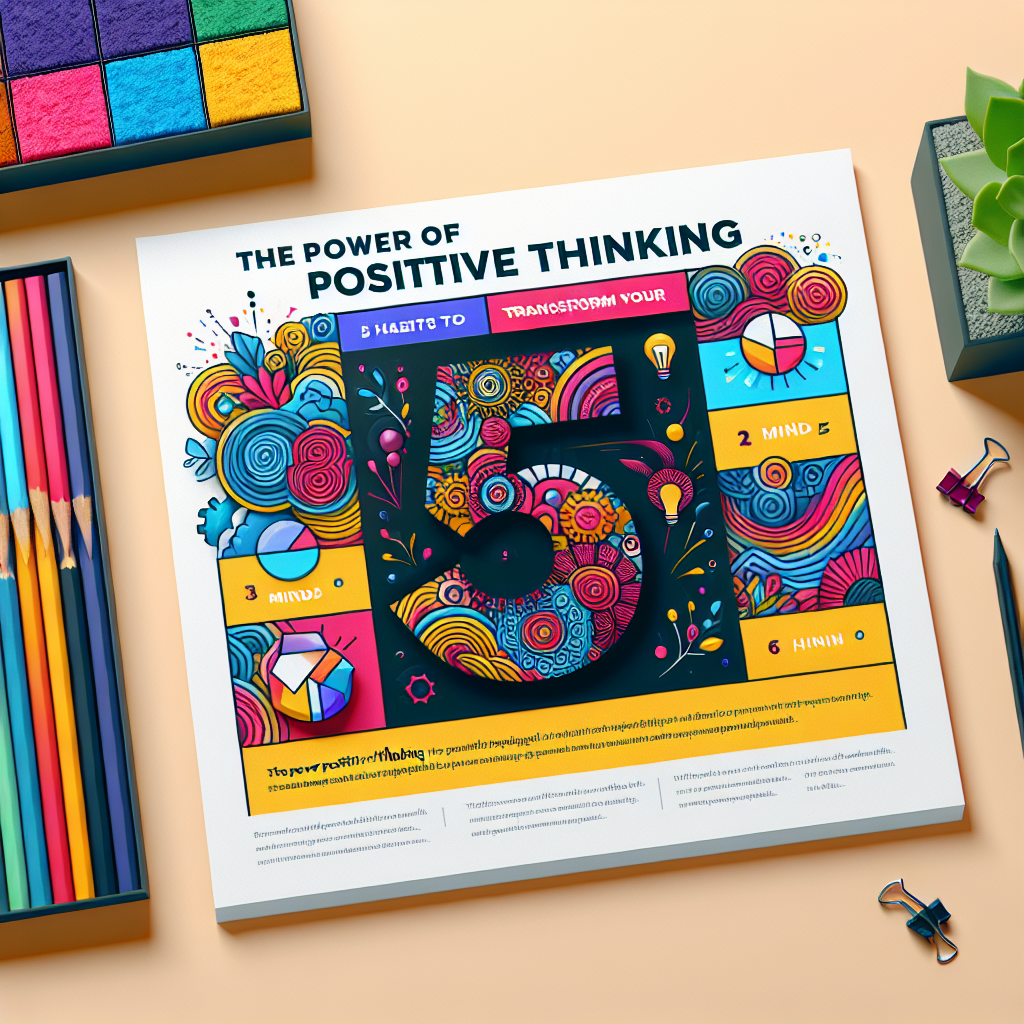The Power of Positive Thinking: 5 Habits to Transform Your Mindset
In today’s fast-paced world, it can be easy to get caught up in negative thoughts and emotions. From the stress of work deadlines to personal challenges, it’s normal to feel overwhelmed at times. However, cultivating a positive mindset can have a profound impact on your overall well-being and success. Research has shown that positive thinking can reduce stress, increase resilience, improve physical health, and even boost creativity and problem-solving abilities. By adopting the following habits, you can transform your mindset and start reaping the benefits of a more positive outlook on life.
1. Practice Gratitude
One of the most powerful habits you can adopt to cultivate a positive mindset is practicing gratitude. By taking the time to acknowledge the things you are grateful for each day, you can shift your focus from what you lack to what you have. This simple habit can help you develop a more optimistic outlook, as it trains your brain to look for the good in every situation. To practice gratitude, try keeping a gratitude journal where you write down three things you are grateful for each day. You can also make it a habit to express gratitude to others by sending thank-you notes or verbally acknowledging their kindness.
2. Challenge Negative Thoughts
Negative thoughts can be pervasive and can have a significant impact on your mood and overall mindset. Learning to challenge and reframe negative thoughts is essential for cultivating a positive mindset. When you catch yourself thinking negatively, pause and ask yourself if there is evidence to support these thoughts. Often, negative thoughts are based on assumptions rather than facts. By challenging these thoughts and looking for a more balanced perspective, you can begin to shift your mindset towards Positivity. You can also practice positive affirmations to counteract negative thinking patterns and build self-confidence.
3. Surround Yourself with Positive People
The people you surround yourself with can have a significant impact on your mindset. Surrounding yourself with positive, supportive individuals can help you stay motivated and optimistic. On the other hand, spending time with negative or toxic people can drain your energy and bring you down. It’s essential to cultivate relationships with people who uplift you and encourage you to grow. Seek out like-minded individuals who share your values and goals, and make an effort to build strong, positive relationships with them. Consider joining networking groups or hobby clubs where you can connect with others who share your interests and values.
4. Practice Mindfulness
Mindfulness is the practice of being fully present and aware of your thoughts, feelings, and surroundings. By cultivating mindfulness, you can develop a greater sense of self-awareness and emotional regulation. Mindfulness practices such as meditation, deep breathing, and yoga can help you stay grounded and centered, even in the face of stress or challenges. By practicing mindfulness regularly, you can reduce anxiety, improve focus and concentration, and foster a more positive mindset. You can start by incorporating mindfulness practices into your daily routine, such as taking a few minutes each day to meditate or practice deep breathing exercises.
5. Set Meaningful Goals
Setting goals that align with your values and aspirations can help you stay motivated and focused on the positive aspects of your life. When you have a clear sense of direction and purpose, you are more likely to approach challenges with optimism and resilience. Take the time to reflect on your long-term goals and break them down into smaller, achievable steps. By setting realistic and meaningful goals, you can create a sense of purpose and accomplishment that fuels your positive mindset. Celebrate your progress and achievements along the way, and use setbacks as opportunities for growth and learning.
FAQs
Q: How long does it take to develop a positive mindset?
A: Developing a positive mindset is a gradual process that takes time and practice. It varies from person to person, but with perseverance and consistency, you can start seeing the benefits of a more positive outlook within a few weeks to a few months.
Q: Can positive thinking really improve physical health?
A: Yes, research has shown that positive thinking can have a significant impact on physical health. Studies have found that positive emotions can reduce stress, lower blood pressure, boost the immune system, and even promote a longer lifespan.
Q: How can I stay positive in the face of challenges and setbacks?
A: It’s normal to face challenges and setbacks in life, but how you choose to respond to them can make a big difference. Practice resilience by focusing on solutions rather than problems, seeking support from loved ones, and looking for the lessons and opportunities for growth in every situation. Remember that setbacks are temporary and can often lead to new opportunities for growth and learning.
In conclusion, cultivating a positive mindset is a powerful tool for improving your overall well-being and success. By adopting the habits outlined above and making a conscious effort to focus on the positive aspects of your life, you can transform your mindset and start living a more fulfilling and joyful life. Remember that positive thinking is a choice you can make every day, and with practice, it can become a natural part of your daily routine.




Leave A Comment